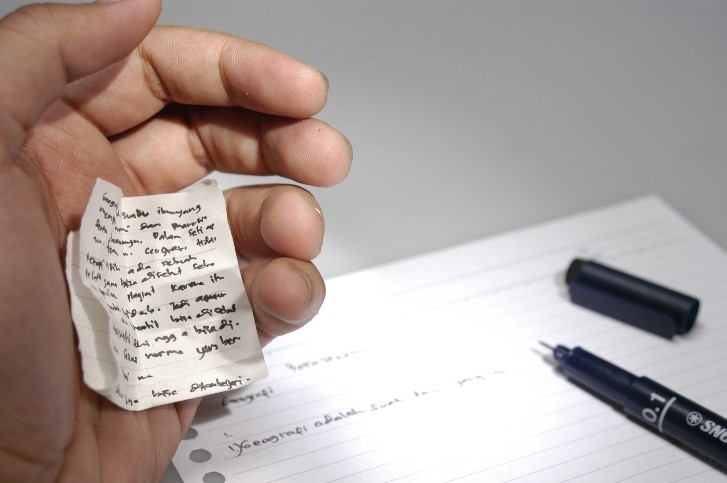Cheating: Is it really worth It?
That’s a pretty big and important question, particularly in an academic setting. I am sure most people have, at some point in their life, contemplated this very question, particularly at times of high stress. Temptations are all around us and it is easy to go against your conscience and everything you know to be truthful and honest, even if just for a moment. But is it right? I think we all know the answer to this one – No, it is not. It doesn't do yourself, or anyone else any favours.
 In an academic environment, it can lead to a penalty as serious as getting kicked out and expelled from your institute. This could then have a knock on effect in your future. If you later decide to study again, and your chosen place of study learns that you have a history of cheating, it is quite possible your application will be denied. Even after many years, when that one lax in judgement that cause you to cheat is long forgotten, it can creep back up on you and have devastating effects. Just like it did for the Hungarian President, Pal Schmitt, who was forced to resign as President after a plagiarism sandal that caused his doctorate to be revoked based on the claim that his thesis was mostly copied from two other sources (The Guardian, 2012).
In an academic environment, it can lead to a penalty as serious as getting kicked out and expelled from your institute. This could then have a knock on effect in your future. If you later decide to study again, and your chosen place of study learns that you have a history of cheating, it is quite possible your application will be denied. Even after many years, when that one lax in judgement that cause you to cheat is long forgotten, it can creep back up on you and have devastating effects. Just like it did for the Hungarian President, Pal Schmitt, who was forced to resign as President after a plagiarism sandal that caused his doctorate to be revoked based on the claim that his thesis was mostly copied from two other sources (The Guardian, 2012).
Avoiding Temptation – How not to cheat
To avoid putting yourself in such a situation, whether it be intentional or not, it is important to understand what actually constitutes as cheating. Here are some examples:
- Submitting work as your own that was written by someone else (e.g. a friend, a relative, or someone unknown to you but who you purchased a paper from)
- Lying to your tutor or lecturer to get an extension on a deadline or to gain some other advantage
- Copying answers from another student, or allowing other students to copy from you
- Not acknowledging sources of information (referencing or citing)
- Re-submitting an already written assignment for a different unit, class or course
The above examples are just a few of the many ways that you can intentionally or accidentally cheat. The main point is, stay true to yourself. Your work should to be just as individual as you are. Every assignment or examination you right should represent your style of thinking and what you’ve learned. Doing your own work builds a sense of confidence and accomplishment, both of which are vital not just to success in your degree, but also in the world of work. Not completing your own work, or taking short cuts does nothing to boost your learning.
Whether you are writing an assignment, giving a presentation or sitting an examination, you are being asked to present your own ideas in an effort to convince others or demonstrate what you have discovered in your research. In every case, it is fundamentally important that your words are the result of your own research and intellectual thought, and each source of information used is appropriately acknowledged.
Caroline Thornton, English Language and Academic Skills Supporter
Reference
The Guardian. 2012. Hungarian President resigns over doctorate plagiarism scandal. Available from: http://www.theguardian.com/world/2012/apr/02/hungarian-president-resigns-doctorate-plagiarism. Accessed: 19 April 2016.